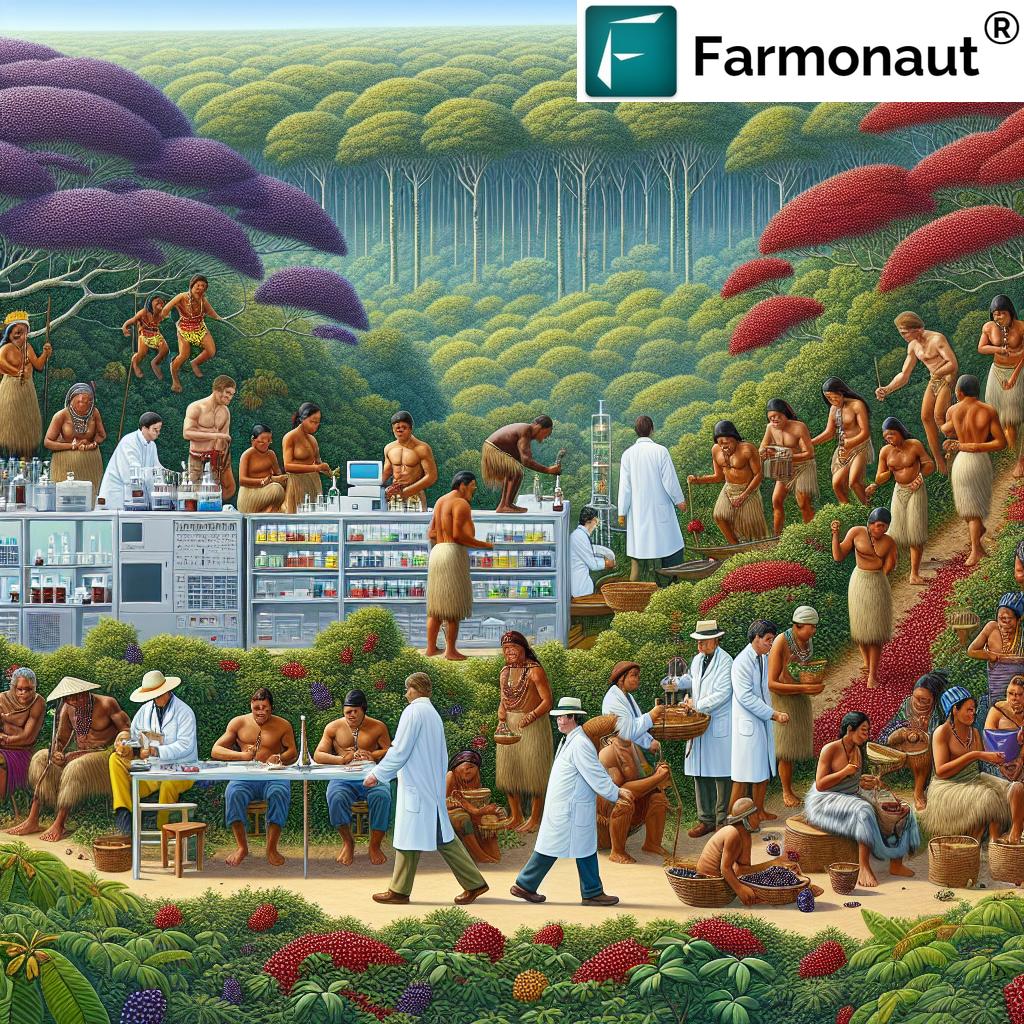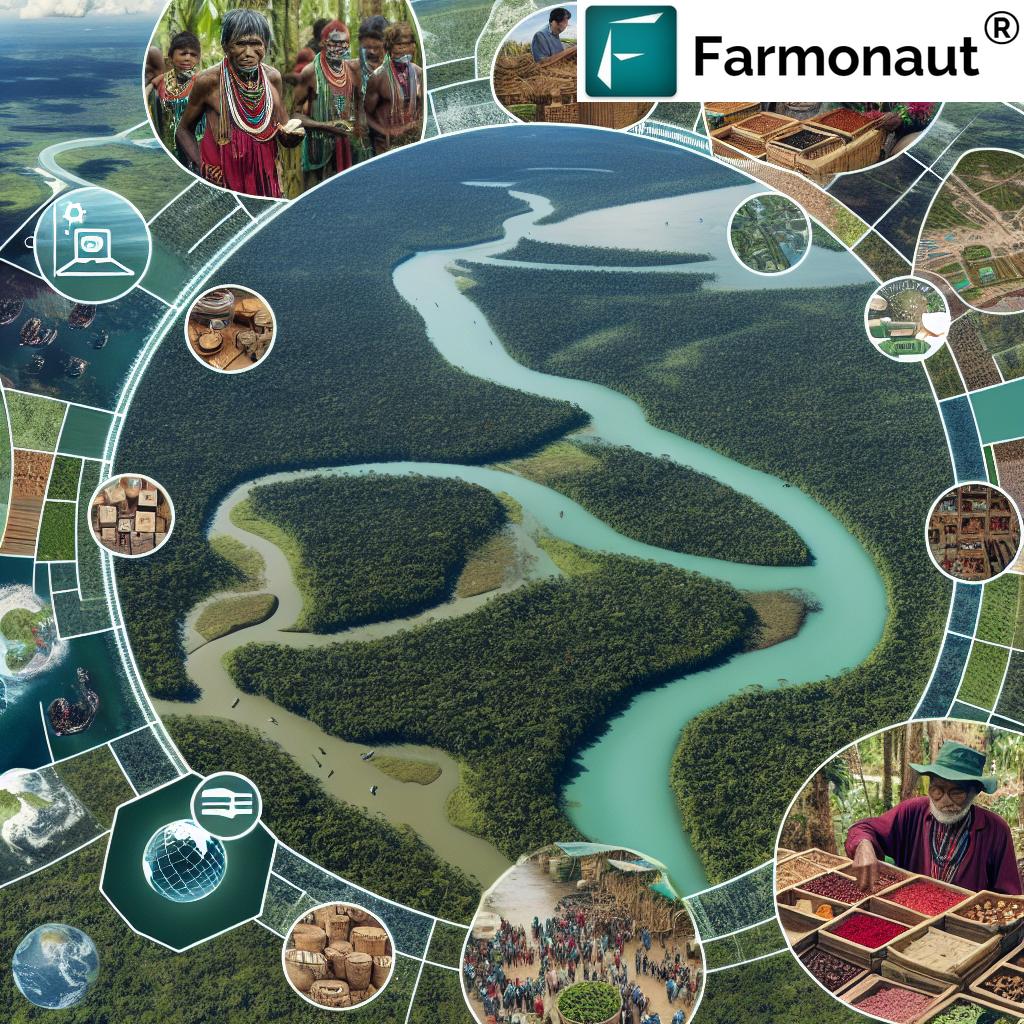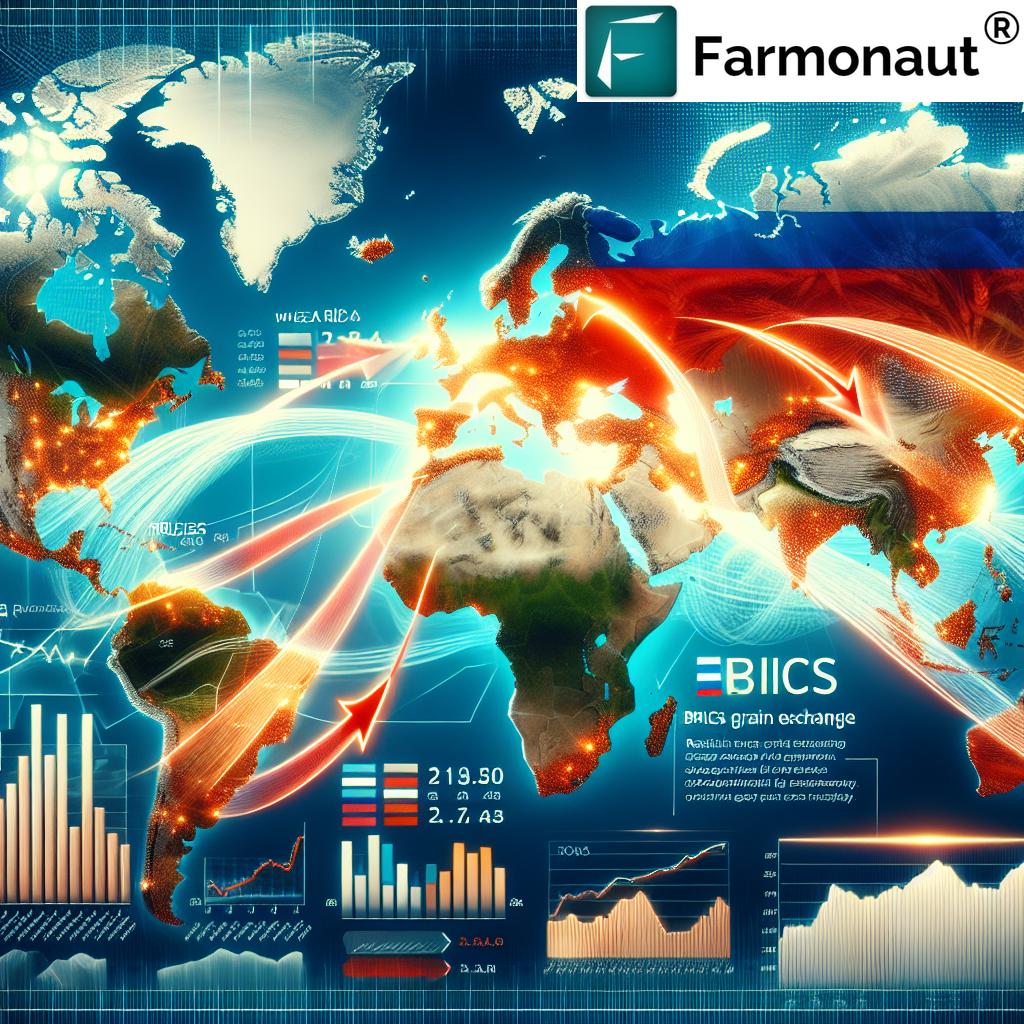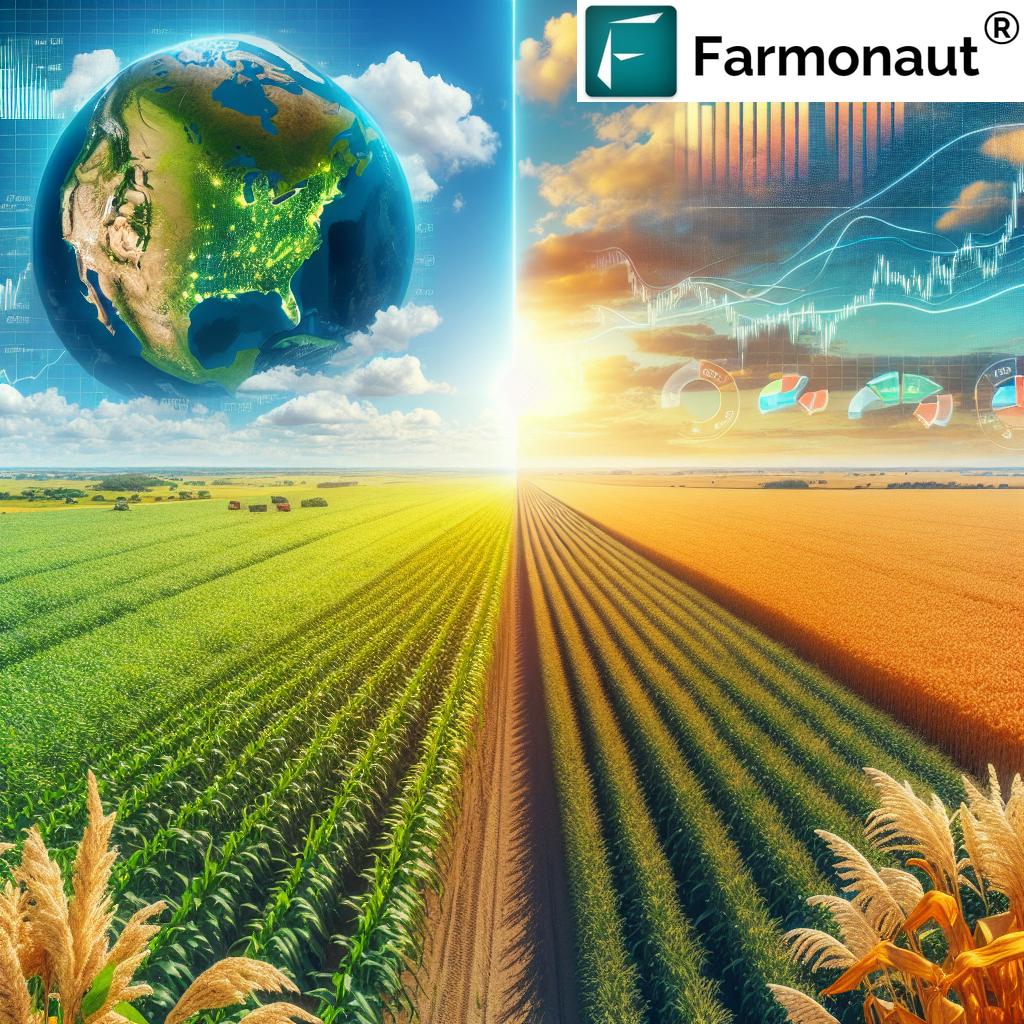Unleashing Amazon’s Potential: Brazil’s Bold Move to Revolutionize Sustainable Forest Trade

In a groundbreaking initiative, Brazil is set to transform its Amazon sustainable forest trade through a pioneering partnership between the International Trade Centre (ITC) and the Brazilian Agricultural Research Corporation (Embrapa). This collaboration marks a significant step towards developing a thriving Brazilian socio-bioeconomy, focusing on sustainable nature-based products and fostering Indigenous forest trade.
The Embrapa-ITC Partnership: A Game-Changer for Sustainable Amazon Development
The Embrapa ITC sustainable trade partnership, formalized on October 22, 2024, aims to revolutionize the way small businesses, Indigenous Peoples, and traditional communities engage with the forest economy. This initiative aligns perfectly with the growing global demand for sustainably produced goods and supports the G20 Bioeconomy Initiative launched by Brazil earlier this year.
Key objectives of this partnership include:
- Promoting sustainable use and management of nature-based value chains
- Equipping producers with skills to add value to products at the source
- Fostering economic growth while supporting Amazon biodiversity conservation
For those interested in leveraging technology for sustainable agriculture, check out the Farmonaut app or explore their satellite API for advanced agricultural insights.
The Urgency of Sustainable Amazon Development
This initiative comes at a critical time for the Amazon rainforest. Recent research has highlighted the risk of Amazon forest “dieback” due to deforestation and climate change. The severe drought of 2024, impacting over 500,000 people across more than 100 municipalities, underscores the urgent need for sustainable development strategies.

Indigenous Peoples, who manage nearly 20% of the Amazon, play a crucial role in its protection. By fostering a sustainable socio-bioeconomy, this collaboration aims to:
- Boost economic growth for forest-dependent communities
- Support Brazil’s ambitious zero-deforestation goal by 2030
- Align with the country’s Bioeconomy Strategy and Plan
Key Areas of Cooperation in the Brazil Socio-Bioeconomy Initiative
The partnership between Embrapa and ITC focuses on several crucial areas to promote sustainable Amazon development strategies:
- Developing Socio-Bioeconomy Business Models: These models aim to promote social inclusion, biodiversity conservation, food security, and sustainable development through trade.
- Strengthening Partnerships: Collaboration with cooperatives and financial institutions to develop and promote models focused on technical assistance and capacity building.
- Skill Development: Supporting small businesses in areas such as financial and digital readiness, product quality, marketing, and sustainable sourcing.
- Promoting Sustainability Standards: Encouraging the adoption of voluntary sustainability standards and measures related to resource efficiency and low-carbon agriculture.
- Inclusive Approach: Mainstreaming youth and gender perspectives in all initiatives.
For those interested in cutting-edge agricultural technology, consider downloading the Farmonaut app:
The Economic Potential of Nature-Based Value Chains in Brazil
The Indigenous forest product market and nature-based value chains in Brazil hold immense economic potential. According to 2022 data from the Brazilian Institute of Geography and Statistics, 18 Amazon socio-biodiversity products reached a production value exceeding R$ 11 billion (approximately USD 1.9 billion). Standout products in this category include:
- Açaí berry trade: A superfood gaining global popularity
- Cocoa: A key ingredient in the chocolate industry
- Brazil nuts: Known for their nutritional value and sustainable harvesting practices
The Indigenous handicrafts market also presents significant opportunities for economic growth and cultural preservation.
The Economic Impact of Sustainable Forest Trade
The World Resources Institute projects that compared to “business as usual,” the deforestation-free, socio-bioeconomy business models could:
- Increase the Brazilian Amazon’s GDP by at least $8.2 billion per year by 2050
- Create thousands of sustainable jobs for local and Indigenous Peoples
- Contribute significantly to Amazon biodiversity conservation economics
For detailed insights into agricultural technology and sustainable farming practices, explore the Farmonaut API Developer Docs.
Voices from the Partnership
ITC executive director Pamela Coke-Hamilton emphasized the socioeconomic focus of the partnership:
“The socioeconomic development of local communities and Indigenous Peoples is at the heart of this partnership. By supporting them to share their long-held knowledge of sustainable practices, they can unlock the full potential of their nature-based products at the global level, through trade, enabling them to earn higher incomes and create jobs.”
Embrapa president Silvia Massruhá highlighted the organization’s commitment to bioeconomy research:
“Our research focuses on developing technologies that increase the added value of these products, with an emphasis on sustainability, directly benefiting local populations. In total, ten research centres are involved in the Inclusive Bioeconomy in the Amazon project, prioritizing groups such as family farmers, Indigenous peoples, traditional communities, agrarian reform settlers and artisanal fishers.”
Conclusion: A Sustainable Future for the Amazon
Brazil’s bold move to revolutionize sustainable forest trade in the Amazon represents a significant step towards balancing economic development with environmental conservation. By fostering a thriving socio-bioeconomy, this initiative not only supports the livelihoods of Indigenous and local communities but also contributes to global efforts in biodiversity conservation and climate change mitigation.
As this partnership between Embrapa and ITC unfolds, it has the potential to serve as a model for sustainable development in other biodiverse regions around the world. The success of this initiative could pave the way for a new era of sustainable trade that values nature as a primary asset, ensuring the preservation of vital ecosystems while promoting economic growth.
For those interested in staying updated on agricultural innovations and sustainability efforts, consider exploring the Farmonaut platform:
As Brazil continues to lead the way in sustainable Amazon development, the world watches with anticipation, hoping that this innovative approach will indeed unleash the full potential of the Amazon while preserving its irreplaceable natural wealth for generations to come.
















